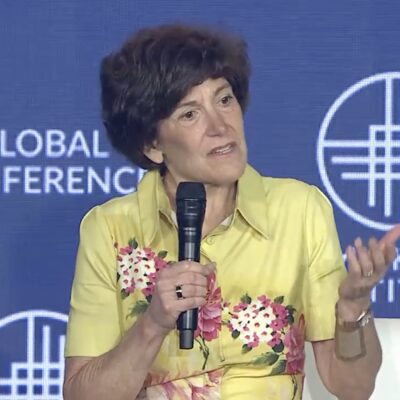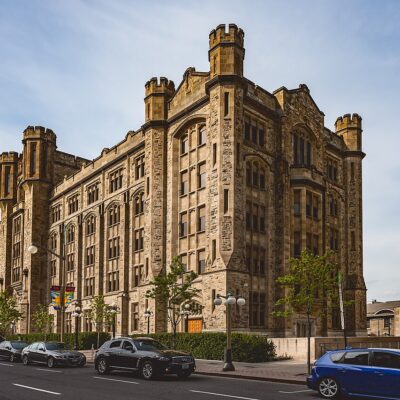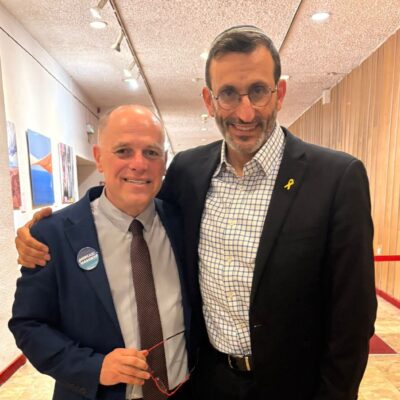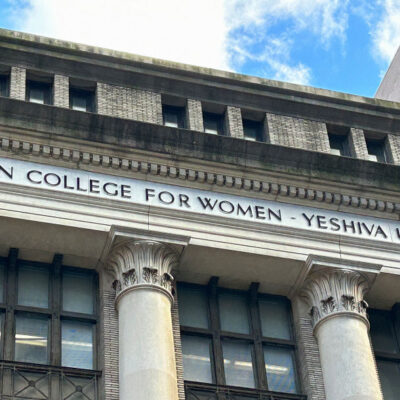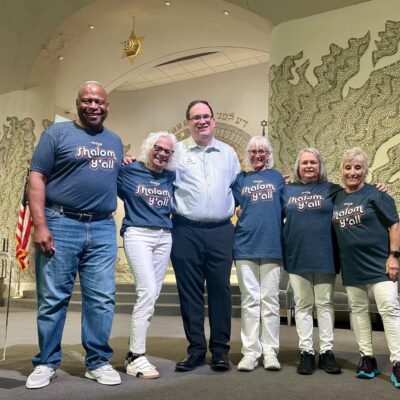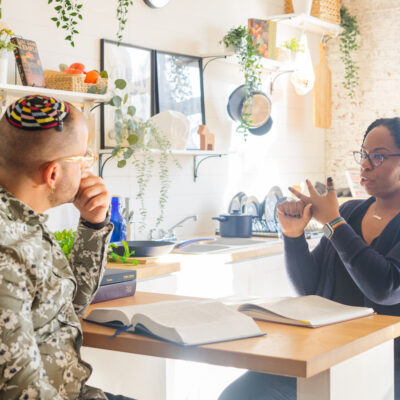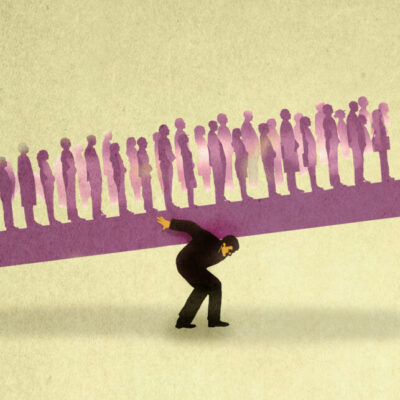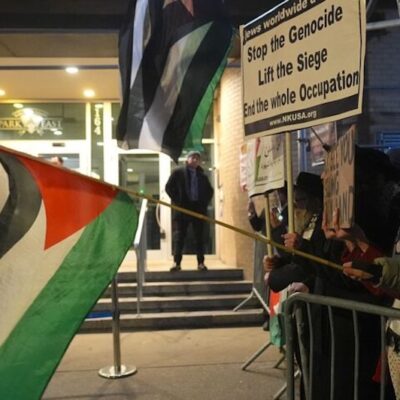Opinion
THE PEOPLEHOOD PAPERS
Reimagining Jewish citizenship in perilous times: A call for a clear articulation and standards for Jewish civics education
In Short
If we fail to provide a structured and meaningful framework for Jewish civic education, we risk further fragmentation and alienation among Jewish communities worldwide.
The following essay is part of a collaboration between eJewishPhilanthropy and the Center for Jewish Peoplehood Education, which will publish a new edition of its Peoplehood Papers series, “The Rifts Within Israeli Society – How Should World Jewry Respond?”, with this essay and more, in the beginning of April.
We stand at a pivotal moment in Jewish history, one that demands a clear and bold re-articulation of what “Jewish citizenship” means in the 21st century. As Jewish communities around the world confront deep polarization, rising antisemitism and shifting political landscapes, the absence of a shared framework for Jewish civic education has become a critical void.

A man carries two Israeli flags during a pro-Israel rally outside of Israeli Embassy on Oct. 8, 2023 in Washington, D.C. Samuel Corum/Getty Images
Israel stands at a defining crossroads as it enters its fourth quarter-century of existence, reeling, as are Jews worldwide, from the harrowing events of Oct. 7 and its aftermath in the most brutal, existential war in its history. At the time of this writing, there are 59 hostages still being held by Hamas. Israel finds itself surrounded by hostile nations and Iranian-funded proxies committed to its destruction while simultaneously navigating historic normalization agreements with several Arab countries, signaling both the persistent existential threats it faces and the evolving regional dynamics that offer new opportunities for diplomacy and stability. Internally, the country grapples with deep fractures: a growing crisis over the mandatory army draft for its Haredi population, the 20% of non-Jewish Arab citizens who continue to navigate their complex place within the state, and the state’s continued sovereignty over millions of Palestinians in an enduring intractable conflict. Israelis recently elected one of the most right-wing governments in its history, igniting fierce debates over divisive policies relating to democracy, governance, national identity and the prosecution of the ongoing war.
Meanwhile, American Jewry faces a new and uncertain chapter in Jewish life marked by the question of whether its Golden Age has come to an end. Antisemitism is rising from both the far right and left, and there is increasing conflation of anti-Israel, anti-Zionist and antisemitic sentiments. Simultaneously, a segment of the younger Jewish population feels disenfranchised and disconnected to the Jewish community; and yet, at the same time, the post-10/7 realities have infused a surge of renewed interest and engagement in Jewish communal life.
These are not peripheral challenges and opportunities — they are defining realities of contemporary Jewish existence. Our conceptions of Jewish peoplehood must embrace these complexities head-on, fostering informed, critical and engaged Jewish citizens who are prepared to navigate and shape the future of the Jewish people.
Now more than ever, we must articulate fundamental principles of Jewish citizenship, ensuring that Jews across generations and geographies — both within Israel and beyond — understand and share a sense of the responsibilities, privileges and challenges that come with being part of the Jewish people. This requires not only intellectual rigor but also an educational strategy that fosters inspiration, engagement, literacy and a deep commitment to Jewish peoplehood.
A new paradigm for Jewish engagement with Israel
The time has come to redefine the way Jewish communities engage with Israel, forging a paradigm that contends with the realities of today and fosters a deeper, more meaningful relationship with Israelis and fellow Jews. This approach must address the fundamental questions that shape Jewish identity today, creating a foundation for engagement that is both intellectually rigorous and deeply connected to Jewish values.
At its core, this new framework must begin with a renewed exploration of Jewish peoplehood and citizenship in a transnational world. What does it mean to belong to the Jewish people today? How do concepts of obligation and responsibility inform our collective identity? These questions must be at the center of Jewish education and discourse, ensuring that Jewish identity is understood not only in national or religious terms but as part of an enduring and evolving civilization.
A central pillar of this paradigm must be a clear and unflinching conversation about Israel as a sovereign Jewish state: its moral and political responsibilities, its role in shaping Jewish identity and how global Jewish communities can and should engage with it, and vice versa. This discussion cannot be divorced from a serious reckoning with the Israeli-Palestinian conflict, where literacy in both history and sociology is critical. Without a nuanced understanding of the conflict’s origins, evolution and competing narratives, including an honest engagement with Palestinian perspectives, Jewish education will fail to prepare future generations for informed, meaningful engagement with Jewish life, not to mention Israel.
Moreover, this paradigm must grapple with the intersection of Jewish identity and political ideologies. Jewish values have long interacted with broader ideological movements, from socialism to liberal democracy to religious nationalism. What tensions arise when Jewish commitments meet the complexities of contemporary politics? How do we navigate these challenges without compromising either our values or our integrity?
Equally important is confronting the evolving challenges of antisemitism in both historical and contemporary contexts. From ancient prejudices to modern political movements on both the right and the left, antisemitism must be understood in all its forms, alongside strategies for combating it effectively in today’s world.
Finally, no meaningful engagement with Israel or Jewish life itself can ignore the importance of internal Jewish pluralism. Jewish civilization has always been defined by a diversity of thought and practice. Strengthening Jewish peoplehood requires fostering a culture that respects and embraces different approaches to Jewish identity, ensuring that ideological and religious differences are a source of richness rather than division.
Back to the fundamentals of Jewish civic education: Building blocks for commitment to content and to real, not imagined, community
The overarching goal of Jewish civic education should be to cultivate a literate, knowledgeable, meaningful and engaged relationship with the real Jewish world as it exists today. That means moving beyond mythologized narratives and embracing the complexity of Jewish history, identity and political realities. This vision for Jewish civic education must be structured around distinct and critical educational lanes:
Hebrew language education
We need a massive recommitment and investment in Hebrew language education across all Jewish educational settings and ideally in some coordinated fashion. Fundamentally, fluency in Hebrew is essential to engaging deeply with Jewish culture, beliefs, music, literature, and debate. Learners must, at the very least, be minimally proficient in the language of the Jewish people, otherwise they have opted to stand outside of it before they have even had a chance to be a part of it. Understanding conversational Hebrew should be the lowest barrier to entry to consume, engage with, and debate the core issues facing contemporary Jews, not to mention Israel’s politics, people and culture. Our institutions have loosened the expectation that “serious Jews” can converse in the Jewish language and by doing so, we leave them standing on the outside. We must unflinchingly reinvest in Hebrew fluency.
Historical Literacy
A deep understanding of Jewish identity requires a rooted knowledge of the past. The complexities of the present can only be fully grasped when we trace the historical forces that have shaped them. This is why Jewish history education must be reclaimed as a foundational, prioritized commitment in all of our educational environments— it must be the floor of our expectations, not a “nice to have.” A literate and knowledgeable Jewish individual requires fluency in the full arc of Jewish history, spanning Antiquity, the medieval period, and early modern times if we are to have any hope of equipping future generations with the tools to understand the challenges facing Jews today.
Every Jewish educational space must re-center a structured, rigorous approach to Jewish historical literacy. It must include — without limiting it to or narrowly focusing on — the emergence of Political Zionism and the creation of the State of Israel.
A full and unflinching engagement with history demands that we also confront competing narratives, including Palestinian claims of the “Naqba,” contested territories, and the debates around various political solutions to the Israeli-Palestinian conflict. It is an undeniable reality that the State of Israel was established on land that was also envisioned as a Palestinian state. Pretending that avoiding these historical and contemporary debates “protects” or “educates” our students is not only misguided — it is a dereliction of our responsibility. True education does not shy away from controversy and complexity; it engages with them directly, equipping learners with the knowledge and critical thinking skills necessary to navigate the world with intellectual honesty and historical integrity.
Centering existential debates and understanding Israel’s sociological fabric
Every serious Jew must understand the sociological fabric of American Jewish life of Israel as well — its ethnic, religious, linguistic and political diversity, including fluency with the 20% of Israeli society that does not identify as Jewish and the populations over whom Israel exercises sovereignty. This demands direct engagement with the debates that reflect Israel’s complexity, rather than superficial narratives. Jewish education must embrace, not avoid, the most pressing and contentious discussions shaping Jewish and Israeli society today. Instead of ceding these conversations to activists or extremists, Jewish education should provide structured, thoughtful engagement that allows students to explore multiple perspectives, analyze competing claims and grapple with difficult realities — and offer them a chance to think through their own conclusions. A serious Jewish civics educational agenda would define the core debates of our time, and invite Jews of all ages and persuasions to be part of these critical conversations.
Special addendum: A call to action to deepen engagement with liberal Jews in America
The American Jewish community is witnessing a surge of interest in Jewish life, with many initiatives successfully engaging younger and liberal Jews. However, many of these initiatives either sidestep Israel altogether or approach it in ways that do not address the hard issues head-on. This gap leaves a critical dimension of Jewish peoplehood unaddressed. If we fail to engage this constituency in thoughtful, nuanced, and values-driven conversations about Israel, we risk losing them to ideological frameworks that lack the depth and historical grounding of Jewish peoplehood. Jewish civic education must rise to this challenge, integrating the democratic, ethical, and justice-oriented principles that resonate with liberal Jews while providing a space for honest and sophisticated exploration of Israel’s past, present and future.
Jewish citizenship for a new era
Jewish citizenship, especially in perilous times, requires a commitment to education that is rigorous, honest and inspiring. If we fail to provide a structured and meaningful framework for Jewish civic education, we risk further fragmentation and alienation among Jewish communities worldwide.
By fostering nuanced, literate and engaged Jewish communities, we can cultivate a future where Jewish identity is not merely about survival but about thriving. We must reimagine an educational framework that invites upcoming generations to not only inherit but to actively shape the Jewish world of tomorrow.
Yona Shem-Tov is the CEO of Encounter, an educational organization working toward informed, courageous and resilient American and Israeli Jewish communal leadership on the Israeli-Palestinian conflict. She wishes to acknowledge Samantha Pohl for her editorial assistance with this piece.

 Add EJP on Google
Add EJP on Google
